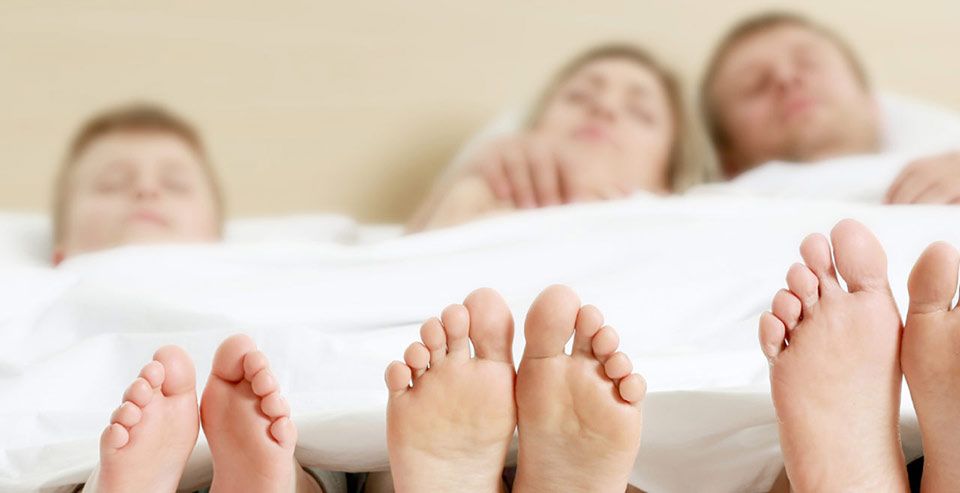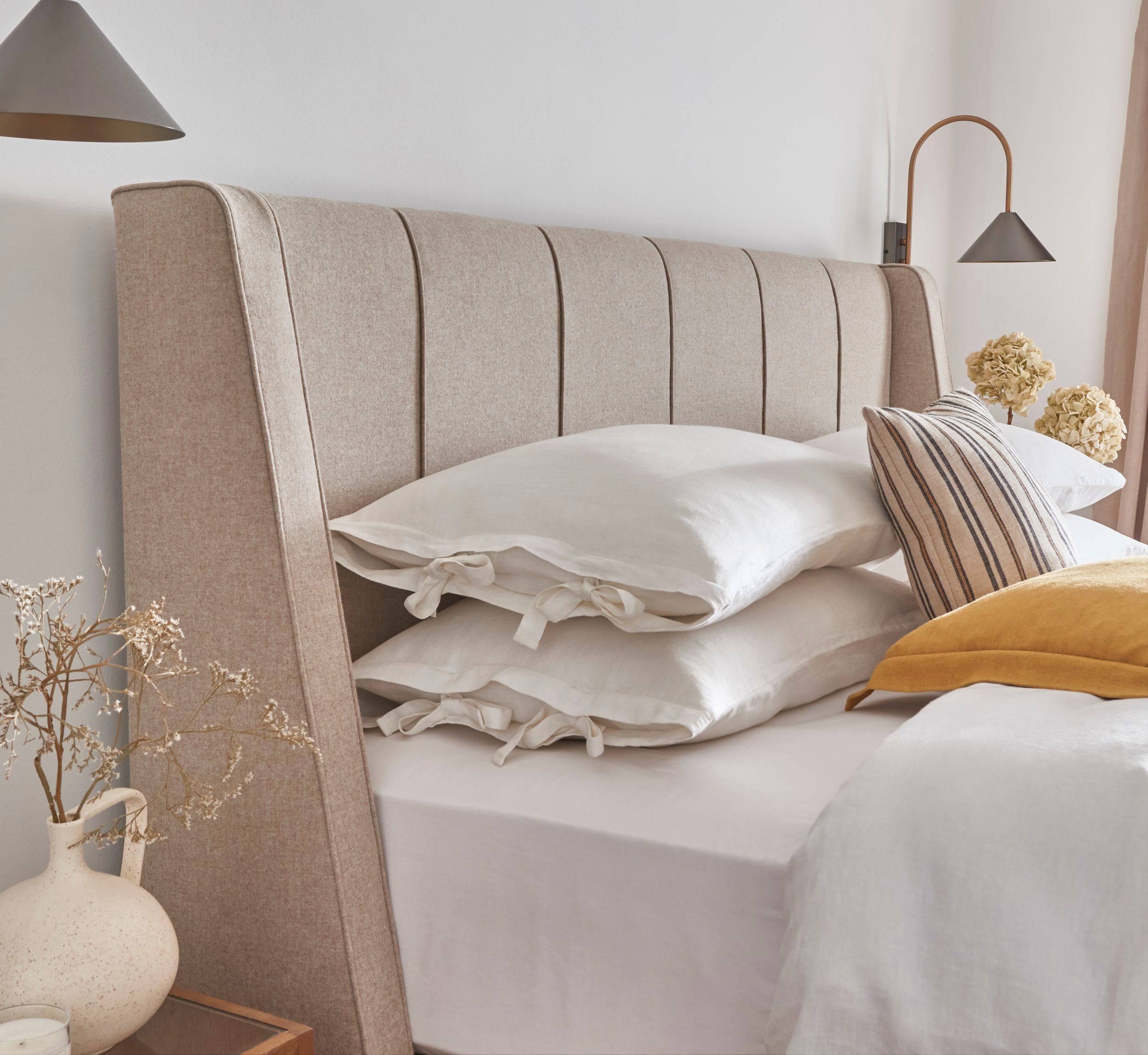The Secret To Sleep: Why A Good Night’s Sleep Is Important For You And Your Family
It’s no mystery that a good night’s sleep can improve your day. In fact, far from just being enjoyable, quality sleep can have a positive impact on your physical and mental wellbeing, for all the family.

The body and brain needs rest to function, just like it requires food, water, and oxygen – so much so, even just one night of poor sleep can affect how well you perform your usual daily activities.
Sleep issues are not uncommon. A survey[1] by The Sleep Charity, who offer expert advice on the benefits of sleep, found that 4 in 10 children will experience a sleep problem at some point.
This number rises to 8 in 10 where there is a diagnosis of Special Educational Need or Disability (SEND), while around a third of adults are said to suffer from insomnia.
We asked Natalie Pennicotte-Collier, Hypnos' resident sleep expert, for her advice on getting better quality sleep…
Why is sleep important
“The great news is that everyone can benefit from taking small steps towards improving their sleep wellbeing and begin to see helpful improvements. For anyone wanting to improve their sleep quality, they first need to understand why it’s important and what they can do to enhance it.
“Sleep needs can differ and change as we age. Adults should be aiming for between seven and eight hours’ sleep every night; for children, it varies with age. School-age children need roughly between nine and 12-hours’ sleep, while teens need between eight and 10. Short naps throughout the day if possible, can also be really helpful.
“As you sleep, your brain replenishes its energy reserves and important chemicals, which are essential for focus and mental clarity. The quality of your sleep is also key for memory consolidation, retaining new information, decision making, and critical thinking, which are all needed to improve work or school performance.
“On the flip side, insufficient sleep can contribute to stress, anxiety and negative mood, and if not resolved, it can also affect your immune system, making you more prone to sickness, as well as body fatigue and often brain fog.”
Lifestyle factors contributing to poor sleep
“Understandably, life can often get in the way of a good night’s sleep, whether it be work commitments, financial worries, or your children waking you in the middle of the night. According to The Sleep Charity, 43% of us cite stress as the biggest obstacle for getting good sleep, with work and financial worries being some of the biggest contributors.
“Sleep deprivation can also occur due to bad habits, such as a poor diet, a lack of regular exercise, drinking too much alcohol, excessive technology use before bed, and an irregular sleep schedule. It’s also important to note that what we eat and drink during the day has a direct link to our sleep health – it’s good to have a healthy balanced diet, avoiding an excessive amount of caffeine and high sugared foods.
“With this in mind, here’s a few tips to ensure you’re getting the best quality sleep you need;”
1. Educate your family on the importance of sleep
“It’s never too early to teach children about the importance and value of sleep. Having a consistent and regular sleep schedule and a set time when you fall asleep and wake up helps to regulate your circadian rhythm – your internal clock – and is one of the best and simplest ways to ensure quality slumber. This not only helps to make sure you get the right amount of sleep, but it also allows you to cycle through all the sleep stages, including deep and REM (Rapid Eye Movement – the phase of sleep when dreams often occur), which are important for restoring your body mentally and physically.
“Bedtime routines are especially important for children, as it can help them relax and wind down and prepare to go to sleep. A predictable routine also gives your child a sense of security and teaches them how to fall asleep on their own. As your child, ‘tween’ or teen becomes accustomed to their bedtime routine, they’ll treat it as a ‘non-negotiable’ part of the day and will start to see helpful benefits the next day.”

2. Create the perfect sleep set up
“If you’re struggling to drift off, your bedroom environment can be a big help. Darkness is key for a good night’s sleep, as this is going to hint to your body that it’s time for rest. If you don’t have blackout blinds, an eye mask is a good option to block out any unnecessary light. Ensure your room is quiet too, white noise could be helpful for young ones, but make sure all background sounds are as minimal as possible.
“The temperature of your room can also affect the quality of sleep, as being too hot or too cold is not conducive to rest. Make sure you have the right bedding for your climate or time of year and create an environment that emulates the best temperature for sleep, which is around 18-20 °C. I’d also recommend clearing your room of clutter too – a clear room equals a clear mind.
“Then you have your bed set up. Central to any high-quality sleep is your bed - and if the mattress you sleep on isn’t comfortable, or isn’t right for you, you simply won’t get the best night’s rest. Your mattress should bemade from natural and sustainable materials, such as wool, to help optimise your sleep by wicking away moisture, promoting breathability and regulating body temperature to help keep you cool in summer and warm in winter.”
3. Switch off electronic devices
“Unplugging in the evenings is one of the easiest and most effective ways to encourage good sleep habits for both young and old. At night, avoid screen time for at least an hour or two before bed – this goes for smart phones, TVs, game consoles, and computers. Though the blue light that’s emitted from screens can be harmful to anyone’s sleep, it especially effects kids as their still-developing eyes and brains see twice the drop in the sleep hormone melatonin that adults do when they are exposed to screens. This means they’re more likely to have delayed bedtimes, fewer hours of sleep and a restless night.
“It’s tempting to stay switched on at all times, especially for working adults, but excessive use of electronic devices can generate anxiety and frustration, particularly if used close to bedtime. We recommend making your bedroom, and your kid’s room, a screen-free zone, as this will remove the temptation to flick on the TV or scroll through your phone.
“In summary, sleep is key for better mental wellbeing for all members of the family. If you’re struggling to sleep at night, follow these top tips to encourage a better-quality rest and future proof your sleep health.”
[1]https://thesleepcharity.org.uk

